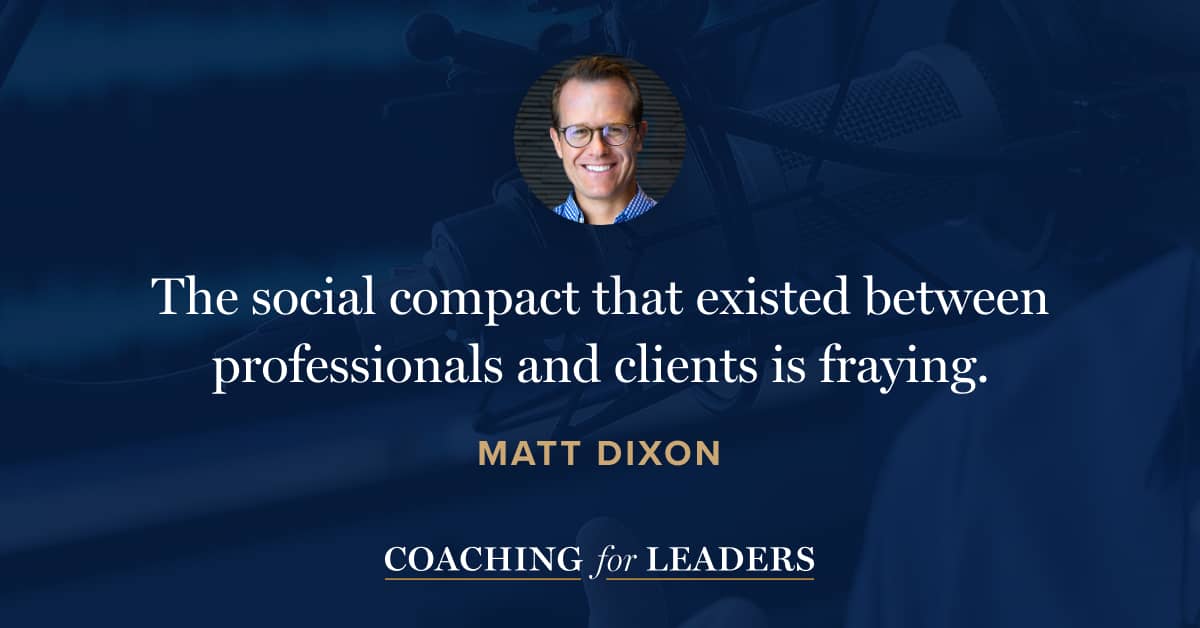Matt Dixon: The Activator Advantage
Matt Dixon is Founding Partner of DCM Insights, a global training and advisory firm, and a leading expert in business development and client experience. His first book The Challenger Sale was a #1 Amazon and Wall Street Journal bestseller, and translated in a dozen languages. His newest book with colleagues Rory Channer, Karen Freeman, and Ted McKenna is The Activator Advantage: What Today’s Rainmakers Do Differently*.
At lot of us know the traits of the kind of person who’s successful at attracting new business. What many of us don’t know, is that what’s working today is actually different than what we traditionally think. In this conversation, Matt and I a take a detailed look at the professionals who are landing the most new business – and what they’re doing that works.
Key Points
- The loyalty that once existed between professionals and their clients has changed substantially in recent years.
- A type of professional called an activator represents the highest performance in business development.
- Activators assume their best clients will leave at some point and are consistently working to build a pipeline of opportunities.
- Many professionals tend to protect client relationships. In contrast, activators actively bring colleagues into these relationships.
- Activators don’t wait for inquiries. They make opportunities happen by building relationships before paid work begins.
- Activators go way past birthdays and factual knowledge about others. They discover what’s important to their clients as individuals.
- Activators go way past “as is” content and work hard to thoughtfully connect it to a prospect or client’s situation.
Resources Mentioned
- The Activator Advantage: What Today’s Rainmakers Do Differently* by Matt Dixon, Rory Channer, Karen Freeman, and Ted McKenna
Interview Notes
Download my interview notes in PDF format (free membership required).
Related Episodes
- The Surprising Truth About Influencing Others, with Daniel Pink (episode 84)
- How to Become the Person You Want to Be, with James Clear (episode 376)
- The Way to Earn Attention, with Raja Rajamannar (episode 521)
Expert Partner
Finding it hard to make an impression in a noisy marketplace? Many listeners have reached out to David Hutchens to help their organizations get traction through the power of story. If you’re planning an offsite or training to get better, get in touch with us to start the conversation with David or any of our other expert partners.
Discover More
Activate your free membership for full access to the entire library of interviews since 2011, searchable by topic. To accelerate your learning, uncover more inside Coaching for Leaders Plus.





